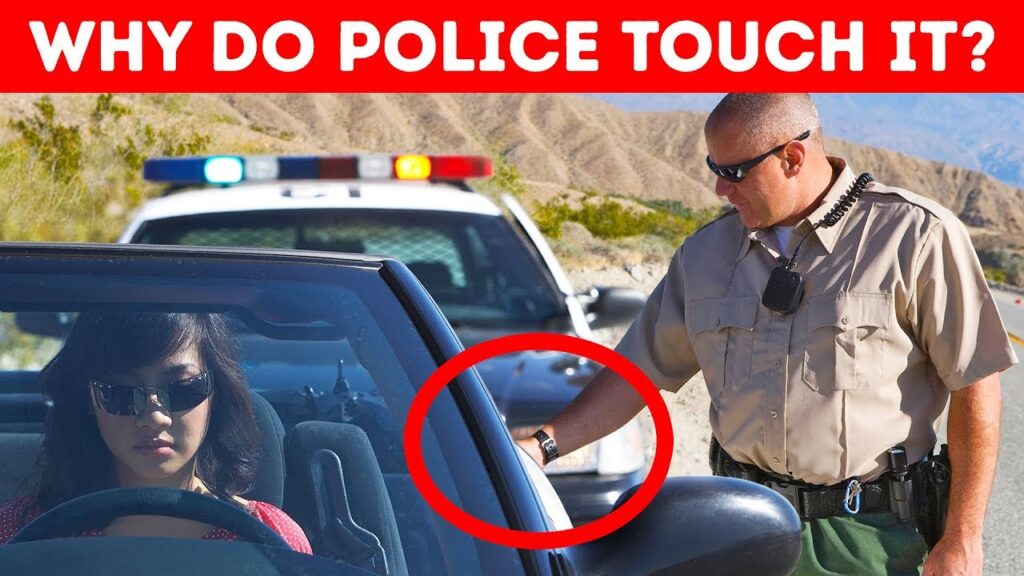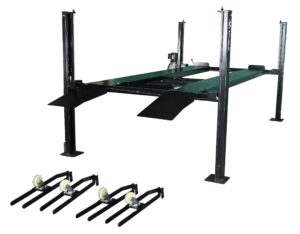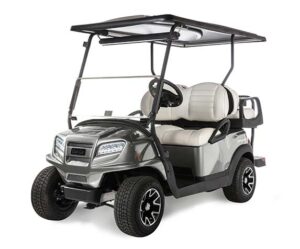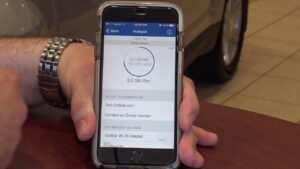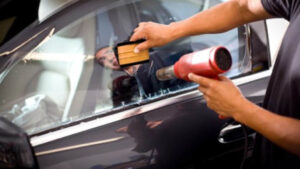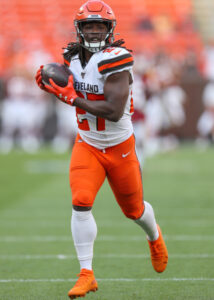When a police officer pulls you over for suspected criminal activity, they may need to touch your car as part of the investigation. Touching the car gives them access to possible evidence that could be on or inside. For example, if drugs are being transported in the vehicle, an officer can get a better idea of what is going on by physically inspecting it.
Additionally, touching the outer frame and windows can provide them with valuable clues such as fingerprints or other identifying marks that could help identify suspects or stolen items. It also allows officers to search for weapons within reach of someone in the car that might pose a threat to their safety. In short, police officers touch cars during traffic stops because it provides them with important information about potential criminal activity and helps keep everyone safe from harm.
Police officers are trained to take certain steps when they approach a vehicle, including touching the car. This allows them to feel for any suspicious items that may be attached to the exterior of the car or inside its interior. By doing this, police officers are able to detect potential weapons, drugs, and other illegal contraband that could pose a threat to their safety.
Additionally, by feeling around the outside of your car they can check for signs of tampering which could indicate criminal activity or an attempt at theft. Ultimately, police officers touch your car with safety in mind – both theirs and yours!
Why Do Police Touch a Car When Pulled Over?
When a police officer pulls over a car, they may touch it for many reasons. Generally speaking, officers will lightly tap the vehicle with their hands or use an object like a flashlight to make sure that no one is hiding inside. Officers also check around the body of the car for any signs of suspicious activity or items.
Additionally, they may place their hand on the hood to feel if it is warm—which could indicate that someone has recently been in the vehicle or that there’s another reason why it should be searched further. Lastly, touching can help reassure both parties during this stressful situation; by showing respect and care from both sides, everyone involved can stay safe and calm throughout the encounter.
Why Do Police Touch Your Car Bright Side?
The bright side of being stopped by the police is that they are there to protect us and our property. Police officers have an important job to do, which includes ensuring the safety of everyone on the roads. When a police officer stops your vehicle, he or she may touch it as part of their duty to check for any potential criminal activity.
By touching your car, they can quickly determine if anything has been tampered with and rule out any suspicious behavior. Additionally, by physically inspecting the car themselves instead of relying solely on technology, police officers can ensure accuracy in their assessment and help prevent wrongful convictions due to faulty evidence. Ultimately, this physical inspection helps keep all motorists safe and secure while also allowing law enforcement personnel to more effectively enforce laws designed to protect citizens from harm’s way.
Why Do Cops Flash Their Lights But Not Pull You Over?
Cops flashing their lights is a common sight on roads and highways, but more often than not they don’t pull you over. This can be confusing for drivers who are unsure of why the police officer would indicate that they should pull over without actually taking any action. The answer lies in the way that cops use their lights as a warning or deterrent to get people to slow down and comply with traffic laws.
It’s important for drivers to understand this so that they can make sure to follow the rules of the road without worrying about being pulled over every time an officer flashes his or her headlights. In some cases, officers may flash their lights because they have noticed suspicious activity near your car, such as speeding or reckless driving, but don’t want to risk a pursuit by attempting to stop you right away—they may prefer to keep tabs on your vehicle from afar until it becomes necessary (or safe) enough for them to approach you directly. Ultimately, understanding why cops flash their lights but not always pull you over comes down respecting law enforcement officers’ roles in keeping our roads safe and following all traffic laws accordingly—it’s better for everyone if these encounters remain brief interactions rather than full-blown confrontations!
Why Do Cops Put Their Hands in Their Vests?
Police officers often put their hands in their vests for a variety of reasons. The first reason is to protect themselves from potential danger and keep their gun holstered, allowing them to draw it quickly if they need to. Being ready with a weapon can save an officer’s life in dangerous situations.
Additionally, putting a hand inside the vest allows police officers to access items stored there like handcuffs or pepper spray without having to remove the entire garment. Keeping items close at hand ensures that an officer is always prepared and ready for any situation they may encounter on patrol. Finally, keeping one’s hands out of sight can help foster trust when interacting with people on duty; this strategy helps reduce hostility by giving citizens the perception that the officer isn’t armed or intimidatingly aggressive.
/cloudfront-eu-central-1.images.arcpublishing.com/prisa/WUEW24KFKNE4VK57ATZXXP64PM.jpg)
Credit: english.elpais.com
Why You Should Not Let Cops Touch Your Tail Lights
It is important to remember that you should never allow a police officer to touch your tail lights. This could result in damage to the light or even create an opportunity for them to plant evidence on your vehicle. Additionally, giving the police access to these parts of your car may be seen as consenting for an illegal search and seizure, which could land you in legal trouble.
Are Cops Allowed to Touch Your Car
Yes, police officers can touch your car if they have a legitimate reason to do so. For example, in the event of an accident or a traffic stop, the officer may need to inspect the vehicle for any evidence that could be related to a crime or criminal activity. Additionally, depending on where you live and what laws are in place, an officer may also have the power to search your vehicle without a warrant if he/she has reasonable suspicion that something illegal is occurring.
Can You Tell a Cop Not to Touch Your Car
Yes, you are able to tell a cop not to touch your car. Under the Fourth Amendment of the U.S. Constitution, all citizens have a right against unreasonable search and seizure by law enforcement officers. Unless an officer has reasonable suspicion or probable cause that there is evidence of a crime in your car, they cannot legally search it or demand that you allow them to touch it without your permission.
Why Do Cops Touch the Side of Your Car
When a police officer pulls you over, they may touch the side of your car as part of their investigation. This is done to check for any concealed weapons or illegal items that may be present in the vehicle. Additionally, it serves as a safety precaution for the officer by allowing them to keep an eye on what’s going on inside and outside of the car while they question you.
Why Do Police Leave Their Fingerprints on Car
When police officers are searching a car, they tend to leave their fingerprints behind on the window or door handles. This is done so that authorities know which officer searched the vehicle and in case any evidence found can be traced back to them. Additionally, leaving fingerprints serves as an additional deterrent for criminals who may think twice before breaking into a car knowing it has been touched by law enforcement officials.
How Do Cops Mark Your Car
Typically, police officers will use a chalk-like substance to mark the tires of your car with a number. This number is usually written on the sidewalls of each tire and serves as an identifier for when they patrol the area again. The purpose of this marker is to help law enforcement track where cars have been parked in order to investigate any potential criminal activity.
By taking note of which cars are present or absent from a certain location, they can more easily identify suspects and witnesses.
Why Do Cops Hold Their Vests
Cops wear vests for protection from bullets and other weapons. The reason why they hold the vest in place is to help keep them secure so that their body armor has a better chance of stopping bullets or shrapnel. Additionally, it reduces fatigue because having to constantly adjust the vest can be tiring when on patrol.
Finally, holding the vest also helps ensure that all straps are properly secured and there aren’t any gaps which would leave officers exposed to firearms fire or edged weapons.
What Does 2 Police Cars Mean
Two police cars at any given scene typically signify an increased presence of law enforcement, which could mean that a more serious incident has occurred. In less severe cases, it may simply indicate the need for two officers to investigate or respond to the situation. Regardless of why two police cars are present, their presence is usually taken as a sign that law enforcement is responding with additional resources and personnel to ensure safety.
Conclusion
This blog post has explored the purpose of why police officers may touch your car when they pull you over. It is important to remember that it is not only for their safety but also for yours: to ensure that no weapons are present in the vehicle and to make sure that evidence from a crime scene does not stay on the car. Despite any reservations, understanding why an officer needs to search or touch your car can help create a more relaxed atmosphere during traffic stops and potentially prevent escalations of violence or other issues.
Ultimately, being aware of police procedures regarding cars will help both drivers and officers alike remain safe while following the law.

